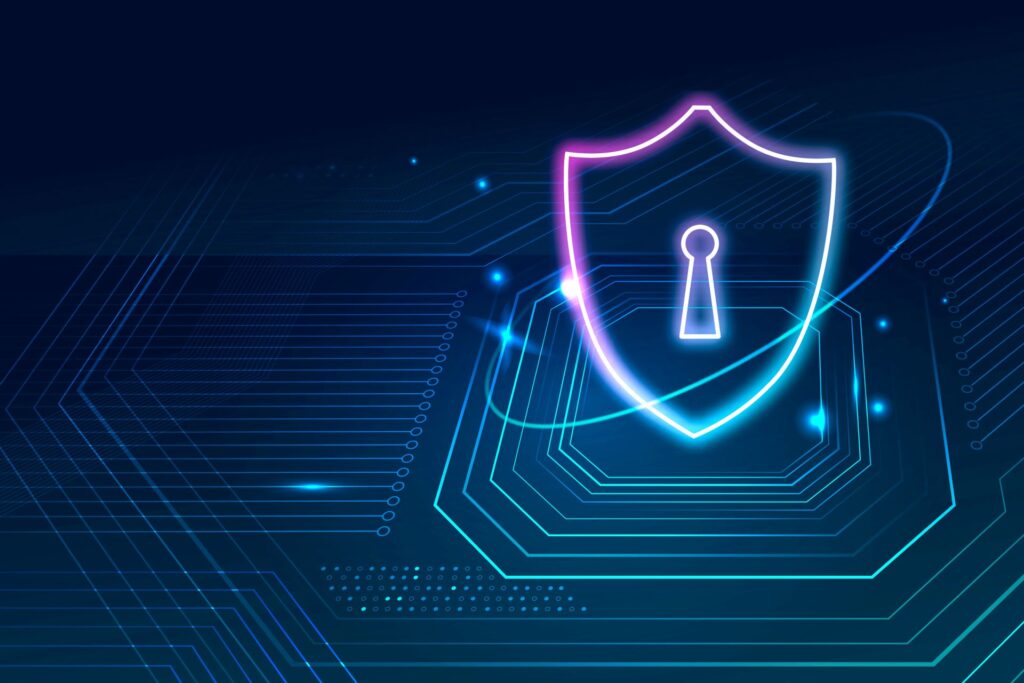In the financial industry, paraplanning outsourcing has become increasingly popular as firms seek to streamline operations and enhance efficiency. But while outsourcing paraplanning, a critical concern professional financial advisors and others who are considering or currently utilising outsourcing paraplanning services ask is, “Is our confidential information safe with you?”
Data security in paraplanning outsourcing is paramount to safeguarding sensitive financial information and maintaining client trust. As firms entrust third-party providers with confidential data, it’s essential to implement robust measures to prevent data breaches and unauthorised access.
Tips to help firms ensure data security in paraplanning outsourcing
In this blog, we’ll explore essential tips to ensure data security in paraplanning outsourcing, helping firms maintain client trust and uphold confidentiality standards.
1. Choose Reputable Service Providers
When outsourcing paraplanning tasks, opt for reputable firms with a proven track record in data security.
Conduct thorough research, read reviews, and ask for referrals to ensure you’re partnering with a trustworthy provider. Look for certifications such as ISO 27001, which signifies adherence to international standards for information security management.
2. Establish Clear Data Handling Protocols
Define clear guidelines and protocols for handling sensitive data right from the outset of the outsourcing arrangement.
Ensure that all parties involved understand their roles and responsibilities regarding data security, including encryption methods, access controls, and data disposal procedures.
3. Implement Encryption Technologies
Utilise encryption technologies to protect data both in transit and at rest. Encrypting sensitive information ensures that even if it falls into the wrong hands, it remains unreadable and unusable without the decryption key.
Implement robust encryption algorithms to safeguard client data from unauthorised interception or theft.
4. Regular Security Audits and Assessments
Conduct regular security audits and assessments to identify vulnerabilities and weaknesses in your data security infrastructure.
Perform penetration testing to simulate cyberattacks and assess the effectiveness of your security measures. Address any gaps or deficiencies promptly to mitigate potential risks.
5. Employee Training and Awareness
Educate your staff, including paraplanners and internal employees, on best practices for data security. Train them to recognise phishing attempts, malware threats, and social engineering tactics that could compromise sensitive information.
Foster a culture of cybersecurity awareness to empower employees to play an active role in safeguarding data.
6. Implement Multi-Factor Authentication (MFA)
Strengthen access controls by implementing multi-factor authentication (MFA) for accessing sensitive systems and data.
MFA adds an extra layer of security by requiring users to provide multiple forms of verification, such as a password and a unique code sent to their mobile device. This significantly reduces the risk of unauthorised access, even if login credentials are compromised.
7. Secure Network Infrastructure
Ensure that your network infrastructure is secure by implementing firewalls, intrusion detection systems, and other cybersecurity measures.
Segment networks to restrict access to sensitive data and prevent unauthorised lateral movement within your IT environment. Regularly update software and firmware to patch known vulnerabilities and protect against emerging threats.
8. Data Backup and Disaster Recovery
Implement robust data backup and disaster recovery plans to ensure business continuity in the event of a cyber incident or data breach. Regularly backup critical data to secure off-site locations and test restoration procedures to verify data integrity and availability.
Develop comprehensive incident response protocols to mitigate the impact of security incidents and minimise downtime.
9. Monitor and Logging
Implement comprehensive monitoring and logging mechanisms to track user activities, detect suspicious behaviour, and identify potential security incidents in real-time.
Monitor network traffic, system logs, and user activities for signs of unauthorised access or data exfiltration. Utilise security information and event management (SIEM) solutions to centralise log data and facilitate proactive threat detection and response.
10. Legal and Compliance Considerations
Ensure compliance with relevant legal and regulatory requirements, such as GDPR, CCPA, and industry-specific standards like PCI DSS for payment card data security. Stay updated on evolving compliance obligations and adapt your data security practices accordingly, to avoid regulatory penalties and reputational damage.
Conclusion
In conclusion, data security is paramount in paraplanning outsourcing to protect sensitive financial information and maintain client trust. By choosing reputable service providers, establishing clear protocols, implementing robust encryption technologies, conducting regular audits, and fostering a culture of cybersecurity awareness, firms can mitigate risks and ensure secure outsourcing practices.
By prioritising data security, firms can leverage the benefits of paraplanning outsourcing while safeguarding confidential information and preserving their reputation in the financial industry.
Ready to Safeguard Your Financial Data?
Partner with befree Today!
At befree, we understand the importance of data security in paraplanning outsourcing. With our proven track record of providing reliable and secure outsourcing paraplanning services, we ensure that your confidential financial information remains protected at all times.
Why Choose befree?
- Industry-leading expertise in data security and compliance.
- Transparent protocols and stringent measures to safeguard sensitive data.
- Proactive approach to identifying and addressing security vulnerabilities.
- Dedicated team committed to upholding the highest standards of confidentiality and trust.
Contact us today to learn more about how we can support your firm’s goals while prioritising data security.
